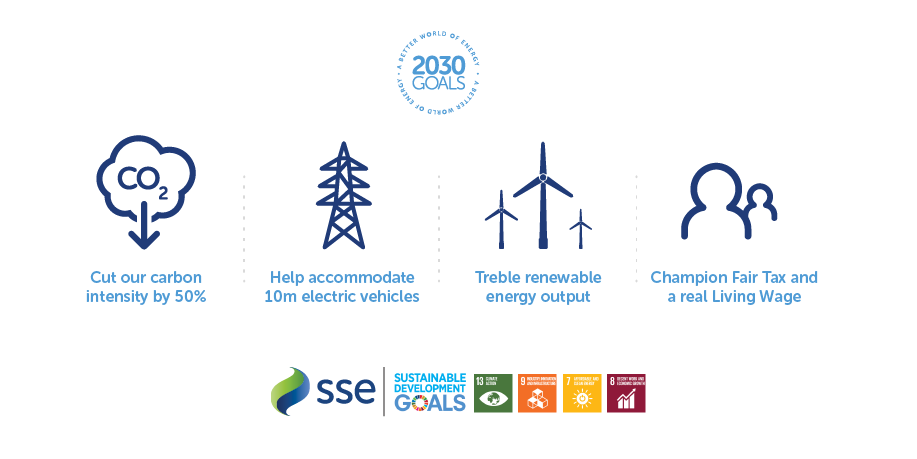Today (February 12) I spoke at an All-Party Parliamentary Group event entitled ‘The Decade of Delivery.’
This event was held to explore the ways business and the private sector help deliver the UN Sustainable Development Global Goals.
The Goals were adopted by all UN Member States in 2015 as a ‘call to action to end poverty, protect the planet and ensure that all people enjoy peace and prosperity by 2030.’
They have since been adopted and used as inspiration for many, ourselves included, where they have inspired our re-set company strategy.
In 2018, a strategy review hard-wired the low carbon transition into our statements of intent – our vision, purpose and strategy. So much so, our Board agreed in January last year to align our business strategy to the UN Sustainable Development Goals. And at today’s event I was able to explain a little around how the goals found their way into our business.
For the purpose of context I think now is a good time to share a little of that process.
While the 17 UN goals provide a rich seam of inspiration – the first step we took was to define the most material goals in the context of our business activities.
Taking carbon out of electricity is by far the most important contribution we can make. Electricity is the first sector in the UK economy that must reach net zero – which, of course - relates to Goal 13 on Climate Action. And to achieve that, we need to invest hundreds of millions – actually - billions of pounds in renewable energy – at a price that does not impact disproportionately on bills. Which is Goal 7 Affordable and clean energy.
We also need to innovate and invest in the infrastructure that will enable the electrification of transport – arguably - the next sector that must achieve net zero status. Which is Goal 9, Industry, innovation and infrastructure. And – in terms of Decent work and economic growth, Goal 8 – our own contribution is significant. SSE’s activities account for nearly 1.5% of Scotland’s GDP – and nearly three quarters a percent of the UKs – consistently every single year. So, the materiality of our impact on achieving those goals – certainly in the UK context – is without doubt.
So, that is how we arrived at setting four business goals of our own, specifically aligned to those four SDGs.

In terms of the goals themselves. Three are about delivering low carbon energy and infrastructure and it’s true, if we achieve those goals on carbon intensity, EV infrastructure and renewable output – we will be a commercially successful company.
But the fourth goal is equally important because it’s about the way we achieve the other three. Things like, paying a real living wage – and paying your taxes go a long way to supporting a fair transition.
There are many other ways in which we contribute to Goal 8 – we simply picked the public totems of taxes and wages as the symbols of our efforts here. But we also understand that we must share value with local places with community benefit funds near our wind farms.
We also know we need to work harder to encourage local content in the economic value chain of our investments.
Because if we don’t avoid actively seek positive social impact, then the public mandate for developing low carbon energy in the future may be eroded.
The UN Global Goals has provided a powerful framework from which we can create and share value with both society and shareholders. It provides a frame from which the business, our shareholders and our stakeholders - can rally around. And from listening to others speaking at the event I am hopeful that the Global Goals will act as a rallying call for other progressive businesses too. Which – of course – is good news for all of us. Because it’s in all out interests that those global goals are achieved - in full - by the end of this decade.


